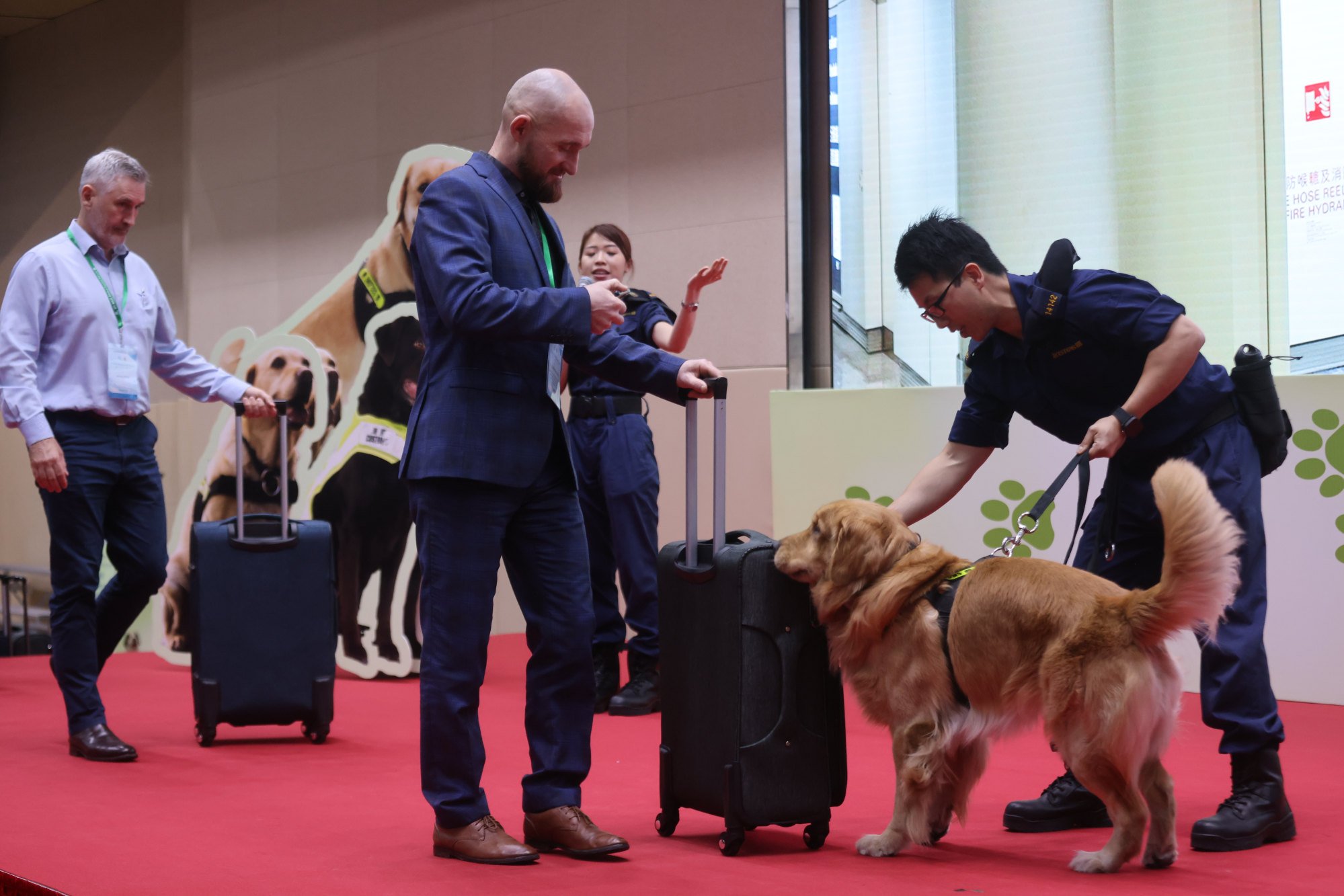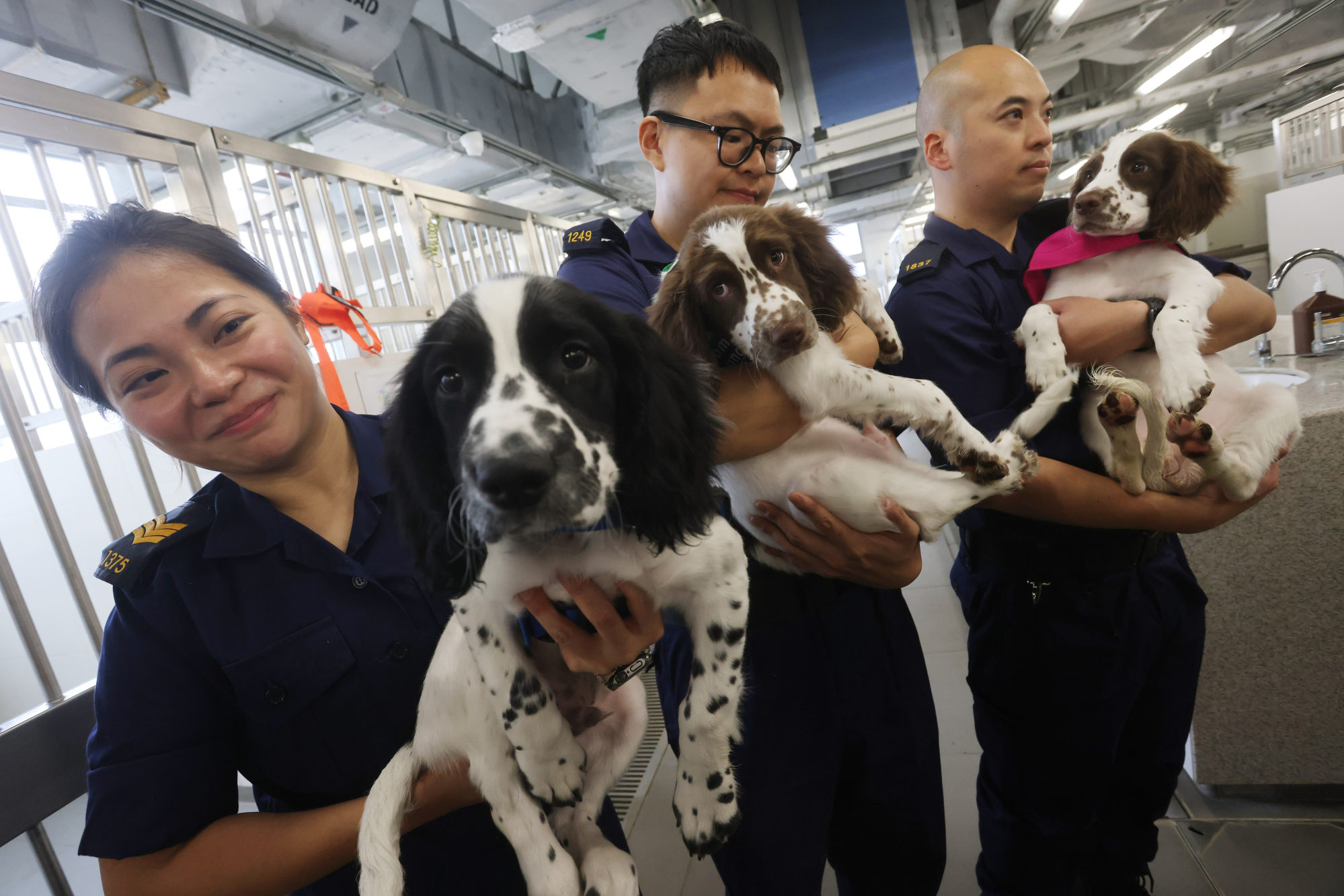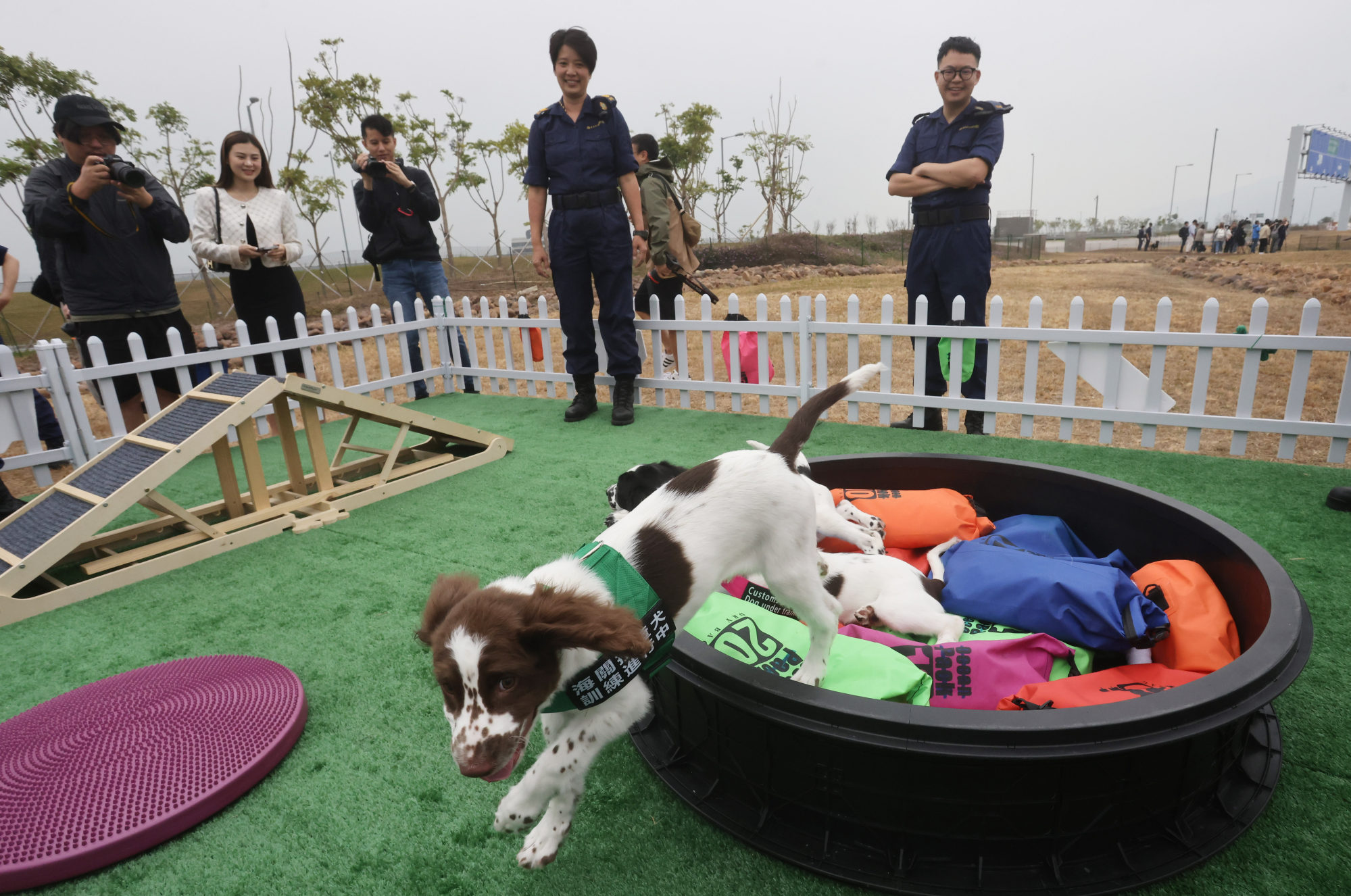
Hong Kong customs to offer regional sniffer dog training after its facilities certified
- Kennels at the Hong Kong-Zhuhai-Macau Bridge’s Hong Kong Port inaugurated as a World Customs Organisation Regional Dog Training Centre
- The centre has bred 28 puppies in four litters and trained 27 pairs of dog handlers since it was set up in 2018
Hong Kong’s customs authorities can now train sniffer dogs from across the Asia-Pacific region after one of the department’s canine training facilities gained international accreditation.
The Customs and Excise Department’s kennels at the Hong Kong-Zhuhai-Macau Bridge’s Hong Kong Port was inaugurated as a World Customs Organisation Regional Dog Training Centre on Wednesday, becoming only the fifth in the region.
“From now on, Hong Kong customs will show responsibility in arranging training to the Asia-Pacific members of the World Customs Organisation,” Commissioner of Customs and Excise Louise Ho Pui-shan said after a ceremony to mark the achievement.

Ho added that the department would develop an assessment and evaluation process for the training needs and canine force development status of member states across the region, so trainers can tailor workshops and seminars to the individual needs of members.
The Hong Kong-Zhuhai-Macau Bridge centre has bred 28 puppies in four litters and trained 27 pairs of dog handlers since it was set up in 2018.

Its most recent litter was eight springer spaniel puppies born to Effie, a tobacco detector dog with the customs department, and Twix, a male dog who served with the Fire Services Department’s urban search and rescue team on its mercy mission to earthquake-hit Turkey last year.
The pups, born last November, will start 10 weeks of training at the regional dog training centre when they are a year old.
Hong Kong customs says no plans to ease recruiting standards, after police cut criteria
They will be assigned to teams in the department and equipped with skills to sniff out a specific category of contraband after training.
The centre expanded its premises last June to include a 8,800 sq ft outdoor training ground in advance of its appointment as a regional hub.
A life-size mock vessel has been built next to the kennel building. The boat is used to simulate contraband checks on shipping containers at the city’s ports.
A one-year-old springer spaniel called Farris, trained to detect tobacco, was lowered on to the vessel in a rope and harness system designed by the Fire Services Department.

Farris sniffed for traces of tobacco hidden inside containers on the vessel as its handler paid close attention to the dog’s movements.
Once Farris showed signs of tobacco discovery, the handler raised his hand to signal to his colleagues to open the suspicious container.
Shawn Tsang Wai-chun, a customs inspector responsible for puppy training at the centre, explained that the mock vessel was installed to better mimic real-life missions for the dogs during training.
Hong Kong fire service reports surge in job applications following easing of rules
“We check many cargo ships every day – each cargo container could contain contraband … our tobacco detector dogs carry out many operations every day,” Tsang said.
The Customs and Excise Department has been using detector dogs since 1975 and launched its in-house breeding programme in 2020.
The four-legged staff members are divided into detection teams specialising in drugs, explosives, firearms, tobacco or cash.

